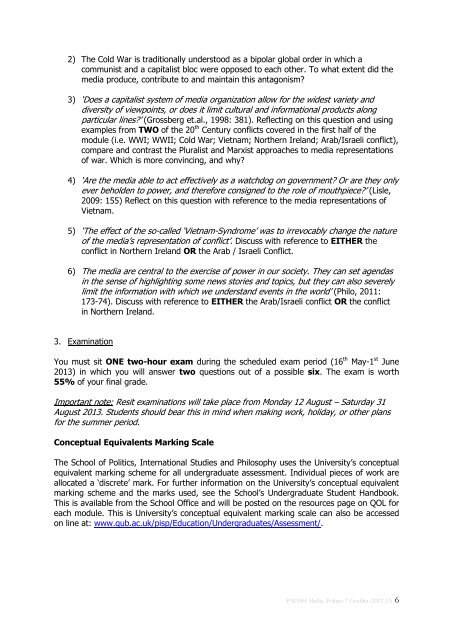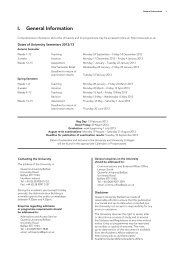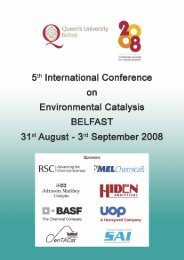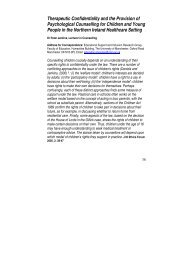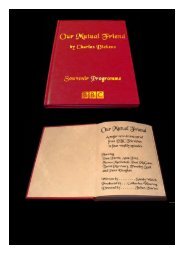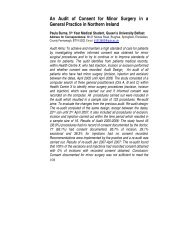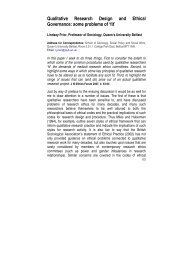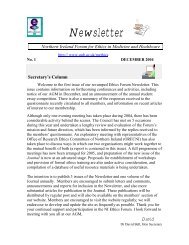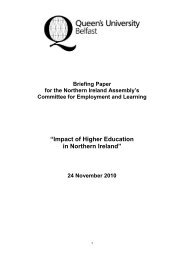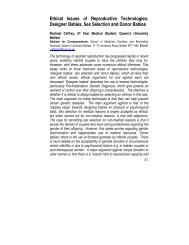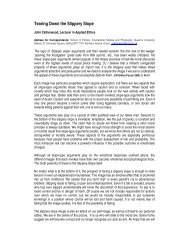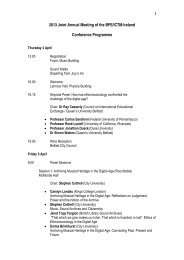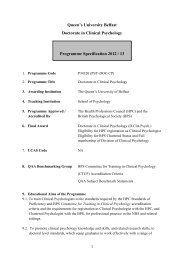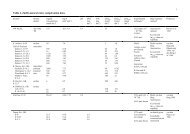Media, Politics & Conflict - Queen's University Belfast
Media, Politics & Conflict - Queen's University Belfast
Media, Politics & Conflict - Queen's University Belfast
You also want an ePaper? Increase the reach of your titles
YUMPU automatically turns print PDFs into web optimized ePapers that Google loves.
2) The Cold War is traditionally understood as a bipolar global order in which a<br />
communist and a capitalist bloc were opposed to each other. To what extent did the<br />
media produce, contribute to and maintain this antagonism?<br />
3) ‘Does a capitalist system of media organization allow for the widest variety and<br />
diversity of viewpoints, or does it limit cultural and informational products along<br />
particular lines?’ (Grossberg et.al., 1998: 381). Reflecting on this question and using<br />
examples from TWO of the 20 th Century conflicts covered in the first half of the<br />
module (i.e. WWI; WWII; Cold War; Vietnam; Northern Ireland; Arab/Israeli conflict),<br />
compare and contrast the Pluralist and Marxist approaches to media representations<br />
of war. Which is more convincing, and why?<br />
4) ‘Are the media able to act effectively as a watchdog on government? Or are they only<br />
ever beholden to power, and therefore consigned to the role of mouthpiece?’ (Lisle,<br />
2009: 155) Reflect on this question with reference to the media representations of<br />
Vietnam.<br />
5) ‘The effect of the so-called ‘Vietnam-Syndrome’ was to irrevocably change the nature<br />
of the media’s representation of conflict’. Discuss with reference to EITHER the<br />
conflict in Northern Ireland OR the Arab / Israeli <strong>Conflict</strong>.<br />
6) The media are central to the exercise of power in our society. They can set agendas<br />
in the sense of highlighting some news stories and topics, but they can also severely<br />
limit the information with which we understand events in the world’ (Philo, 2011:<br />
173-74). Discuss with reference to EITHER the Arab/Israeli conflict OR the conflict<br />
in Northern Ireland.<br />
3. Examination<br />
You must sit ONE two-hour exam during the scheduled exam period (16 th May-1 st June<br />
2013) in which you will answer two questions out of a possible six. The exam is worth<br />
55% of your final grade.<br />
Important note: Resit examinations will take place from Monday 12 August – Saturday 31<br />
August 2013. Students should bear this in mind when making work, holiday, or other plans<br />
for the summer period.<br />
Conceptual Equivalents Marking Scale<br />
The School of <strong>Politics</strong>, International Studies and Philosophy uses the <strong>University</strong>’s conceptual<br />
equivalent marking scheme for all undergraduate assessment. Individual pieces of work are<br />
allocated a ‘discrete’ mark. For further information on the <strong>University</strong>’s conceptual equivalent<br />
marking scheme and the marks used, see the School’s Undergraduate Student Handbook.<br />
This is available from the School Office and will be posted on the resources page on QOL for<br />
each module. This is <strong>University</strong>’s conceptual equivalent marking scale can also be accessed<br />
on line at: www.qub.ac.uk/pisp/Education/Undergraduates/Assessment/.<br />
PAI1005 <strong>Media</strong>, <strong>Politics</strong> 7 <strong>Conflict</strong> (2012-13) 6


